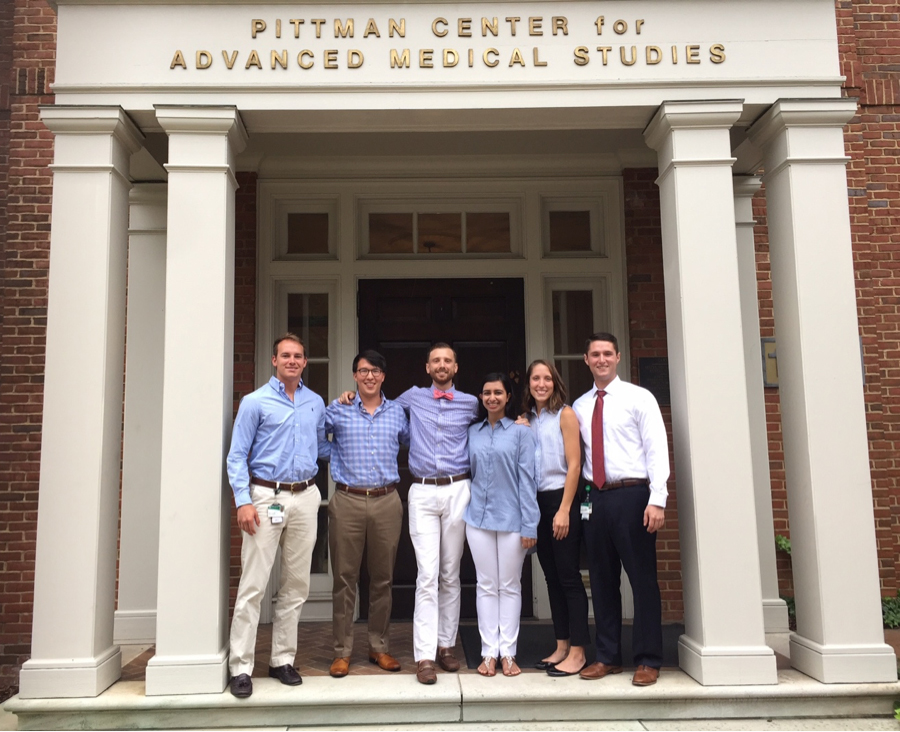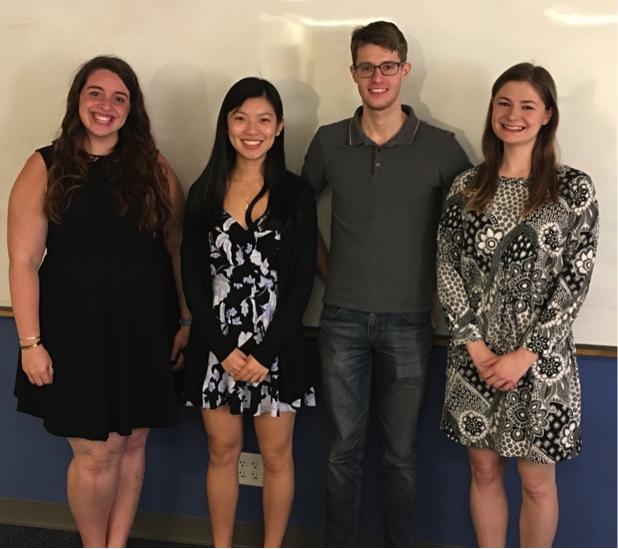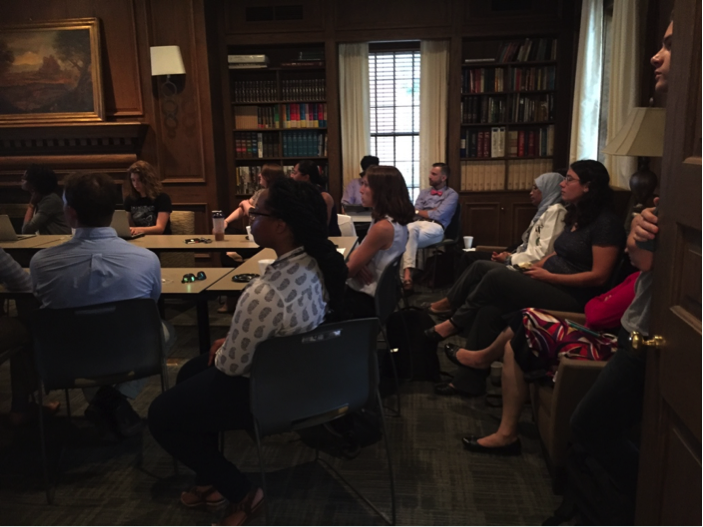The 2017 cohort of the CCTS Summer Enrichment Program, our 8-week training to prepare students early in their clinical education for a possible career in translational research, recently presented their final projects. Trainees spend the summer learning the general principles of research, with a specific focus on patient-centered outcomes and comparative effectiveness, while working with a mentor to conduct a formal research project.
This year’s cohort included seven trainees at UAB and four trainees at Tulane. Their mentors and presentation titles are listed below. CCTS thanks Dr. Ken Saag (UAB), Dr. Tonette Krousel-Wood (Tulane), and Rachel Ruiz (Tulane) for leading and organizing the Summer Enrichment program this year.
| Trainee | Mentor | Institution | Research Project | ||||||||||||
| Chenchen Feng | Allison B. McCoy, PhD | Tulane | Using Electronic Health Records to Measure Ambulatory Adverse Drug Events |
||||||||||||
| Alexander Niculescu | Lydia Bazzano, MD, PhD Alessandro Bazzano, PhD, MPH |
Tulane | Understanding How People Who Inject Drugs Experience Relationships with Healthcare Professionals |
||||||||||||
| Christine Petrin | Jylana Sheats, PhD, MPH | Tulane | mHealth Intervention to Improve Eating Behavior among African Americans in New Orleans |
||||||||||||
| Shana Zucker | Edward McCoul, MD | Tulane | Recovery from Rhinitis Medicamentosa: A Systematic Review |
||||||||||||
| Anooshah Ata | Burel Goodin, PhD | UAB | Risk Factors for Chronic Pain and HIV | ||||||||||||
| Sellers Boudreau | Amelia Sutton, MD Sarah Gould, MD Lorie Harper, MD |
UAB | Effects of Exercise on Pregnancy Outcomes | ||||||||||||
| Jenny Combs | Sarah Gould, MD Lorie Harper, MD |
UAB | Abdominal Trauma in Pregnancy | ||||||||||||
| Chase Cox | James Galbraith, MD | UAB | Universal Screening for Hepatitis C in a Psychiatric Patient Population |
||||||||||||
| Alex Dombrowsky | Courtney Balentine, MD, MPH | UAB | Why is Hyperparathyroidism Underdiagnosed and Under-Treated in Older Adults? |
||||||||||||
| Winston Joe | Ellen Eaton, MD | UAB | Cost-Effectiveness of Syphilis Screening Algorithms | ||||||||||||
| Kaitlyn Merrels | Gregory Kennedy, MD, PhD | UAB | Attentiveness to Care |
 Congrats to the UAB cohort of our 2017 Summer Enrichment Program, including (l to r) Sellers Boudreaux, Winston Joe, Chase Cox, Anoosha Ata, Kaitlyn Merrels, and Alex Dombrowsky (not pictured: Jenny Combs). Congrats to the UAB cohort of our 2017 Summer Enrichment Program, including (l to r) Sellers Boudreaux, Winston Joe, Chase Cox, Anoosha Ata, Kaitlyn Merrels, and Alex Dombrowsky (not pictured: Jenny Combs). |
 Congrats to the Tulane cohort of our 2017 Summer Enrichment Program, including (l to r) Shana Zucker, Chenchen Feng, Alexander Niculescu, and Christine Petrin. Congrats to the Tulane cohort of our 2017 Summer Enrichment Program, including (l to r) Shana Zucker, Chenchen Feng, Alexander Niculescu, and Christine Petrin. |
Are You Interested in Becoming a CCTS Summer Research Trainee?
 The 2017 Summer Enrichment trainees presented their findings to an appreciative, engaged audience.
The 2017 Summer Enrichment trainees presented their findings to an appreciative, engaged audience.
Over the course of eight weeks, trainees receive mentored research experience and attend seminars in study design, responsible conduct of research, team science, information finding and evaluation of literature, and statistics. Previous research experience is not required, but trainees are required to conduct a mentored research project and prepare a written abstract, poster, and presentation to summarize their findings. Trainees are also expected to devote full-time effort (40 hours a week) and receive a stipend.
Acceptance to the program is competitive and requires a cv, official letter of academic good standing from a clinically relevant doctoral program, two letters of recommendation, and a personal statement. CCTS will announce the availability of the application for Summer Enrichment Program 2018 later this year via the CCTS Digest and the TL1 Training Grant Program web page.
Clinical doctoral or pharmacy students from across the CCTS partner network, who will have completed at least their first year of training by summer 2018, are encouraged to apply. The eight-week program, which aims to meet a pressing national need for researchers trained to more rapidly move scientific discoveries into the clinical setting, is federally funded. As such, trainees must be U.S. citizens or permanent residents.